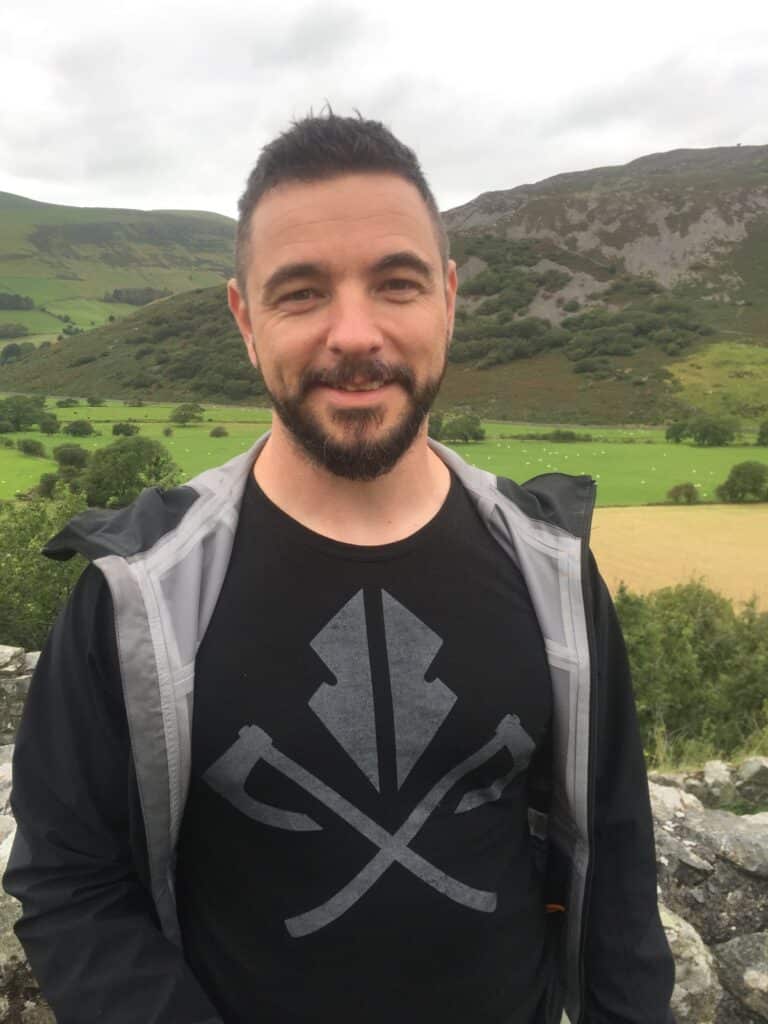Embracing the Journey: A summary of Viktor Frankl’s Logotherapy
Every man comes to a crossroads in his life – a moment where he looks around and asks, What’s the point of all this?
Whether it’s finding yourself staring at the ceiling at 3am anxious and worried about the future, or getting up in the dark and cold to make sure you leave plenty of time for your commute to yet another unsatisfying day of work, we all wrestle with this question of meaning.
Viktor Frankl, a Holocaust survivor and renowned psychiatrist, had more reason than most to ask this question. His answer? Meaning isn’t something you wait for – it’s something you create. And this became the foundation of logotherapy, a powerful psychological approach that teaches us that even in suffering, even in chaos, we have the power to find purpose.
In this article, I summarise the key components of Viktor Frankl’s philosophy, his core principles of logotherapy, and how you can use them to help you build stronger, more connected and passionate relationships, overcome anxiety, and lead a life that’s satisfying and full of purpose.
The Genesis of Logotherapy
A Battle of Ideas: Freud, Adler, and Frankl
In the 20th century, many new ideas were developed in the field of psychology. Sigmund Freud believed that human behavior was driven by the pursuit of pleasure (the will to pleasure), while Alfred Adler argued that our deepest motivation was to gain power and control (the will to power).
But Viktor Frankl saw something different.
After Frankl worked with patients struggling with depression and suicidal thoughts, he noticed that what people truly needed wasn’t pleasure or power – it was a reason to wake up in the morning. He called this the will to meaning, and it became the core of logotherapy.
Frankl’s Time in the Concentration Camps
Frankl’s ideas weren’t just theories. He lived them and then wrote about them so that others could benefit from his own experiences.
During World War II, he was imprisoned in Nazi concentration camps, including Auschwitz. He lost his wife, his parents, and his unborn child.
He saw men reduced to nothing – starving, beaten, and hopeless.
And yet, some survived. Not just physically, but mentally.
Frankl noticed that the prisoners who found a sense of purpose – whether it was the dream of reuniting with his family, finishing a book, or helping the other inmates – were far more likely to endure the unimaginable suffering they encountered during their time in the concentration camps.
After his release he wrote:
“Everything can be taken from a man but one thing: the last of the human freedoms – to choose one’s attitude in any given set of circumstances.”
That realization became the foundation of logotherapy, a form of existential analysis focused on helping people find meaning, even in suffering.
Core Principles of Logotherapy
There are three fundamental principles of logotherapy:
1. The Will to Meaning
Humans aren’t just pleasure-seekers or power-hungry creatures. What we really crave is a deep sense of meaning. When a man lacks purpose, he drifts, gets depressed, or numbs himself with distractions – alcohol, workaholism, or meaningless relationships.
But when he knows his why, he can endure almost any how.
2. Freedom of Will
No matter what happens, you always have a choice. Frankl believed that even in the worst conditions, humans have the ability to decide how they respond.
This isn’t about blind positivity. It’s about understanding that you may not control your circumstances, but you control your perspective and your actions.
3. Meaning in Suffering
Pain is inevitable. But suffering is different. Suffering happens when we see pain as meaningless. Frankl believed that when we attach purpose to suffering, it transforms us instead of breaking us.
The question isn’t How do I avoid pain? but rather How do I make my suffering meaningful?
The Three Paths to Meaning
So, how do we actually find meaning? Frankl suggested three distinct paths:
1. Creative Values: Meaning Through Work
When a man pours himself into his work – whether it’s writing, building, teaching, or leading – he finds purpose.
Your work is a form of self-expression. If you see it as a means to an end (just paying bills), you’ll feel empty. But if you see your work as a way to serve, create, or contribute, it becomes meaningful.
Experiential Values: Meaning Through Love and Beauty
Experiencing love, deep friendships, nature, art, and the wonders of life gives us meaning. Frankl believed that the simple act of witnessing beauty – watching a sunset, listening to music, or deeply connecting with another person – was a profound source of purpose.
Attitudinal Values: Meaning Through How We Face Suffering
If we cannot change our circumstances, we can change our attitude toward them. This is perhaps the most difficult, yet most powerful, path to meaning.
The man who faces hardship with dignity, courage, and wisdom grows in ways the comfortable man never will.
Logotherapy in Practice
How does logotherapy actually work? Frankl developed three therapeutic techniques:
1. Dereflection
When we focus too much on our suffering, it grows. Dereflection helps shift attention away from problems and toward meaningful goals.
For example, instead of obsessing over social anxiety, a man might focus on engaging with and helping others, naturally reducing his anxiety.
2. Paradoxical Intention
This technique helps people overcome fears by doing exactly what they’re afraid of.
A man terrified of public speaking might intentionally exaggerate his nervousness, making himself laugh at it. This counteracts the fear and removes its power.
3. Socratic Dialogue
Through guided questions, a therapist helps a person discover the meanings they already hold inside. Logotherapy isn’t about giving people answers—it’s about helping them uncover their own.
Logotherapy’s Influence Beyond Therapy
Logotherapy isn’t just for clinical settings – it applies everywhere in life:
– In Education
Teaching students how to find meaning in their studies and future careers can transform their motivation.
– In the Workplace
Leaders who help employees connect their work to a larger purpose create environments of passion and fulfillment.
– In Relationships
A relationship rooted in shared meaning – whether it’s building a family, traveling, or growing together – is far stronger than one based on convenience.
Critiques and Counter Arguments
Like any theory, logotherapy has its critics. Some argue that it’s too idealistic, that meaning alone isn’t enough to heal deep trauma. Others question whether all suffering can truly be meaningful.
But even if meaning doesn’t erase pain, it gives us the strength to bear it.
Modern-Day Applications of Logotherapy
– Coping with Global Crises
In a world of pandemics, wars, and economic instability, logotherapy provides a framework for resilience. Instead of sinking into despair, we can ask: How can I use this moment to grow?
– Mental Health
Modern society offers more distractions than meaning. Depression and anxiety often stem from a lack of purpose. Logotherapy helps people reconnect with what truly matters to them.
Personal Reflections and Practical Exercises
Want to understand how you can apply logotherapy to your life? Try these:
• Identify Your Why: Write down three things that make your life meaningful. If you struggle, start small.
• Shift Your Focus: When facing a problem, ask: What is this teaching me? How can I use this?
• Embrace Responsibility: Stop waiting for life to “get better.” Take ownership of creating meaning now.
Meaning – The Ultimate Freedom
Frankl’s legacy is defined by this one statement: No matter what happens, you always have the power to choose what it means to you.
Life is unpredictable. Pain is inevitable. But in the end, the man who chooses meaning over despair, purpose over pleasure, and responsibility over helplessness becomes unbreakable.
The question isn’t What’s the meaning of life?
The question is What meaning will you create?
If you want to learn how to become a man who is able to create a life that’s filled with meaning, passion and motivation contact me for a free 60 minute coaching call where we’ll explore what you want and what’s currently holding you back.








